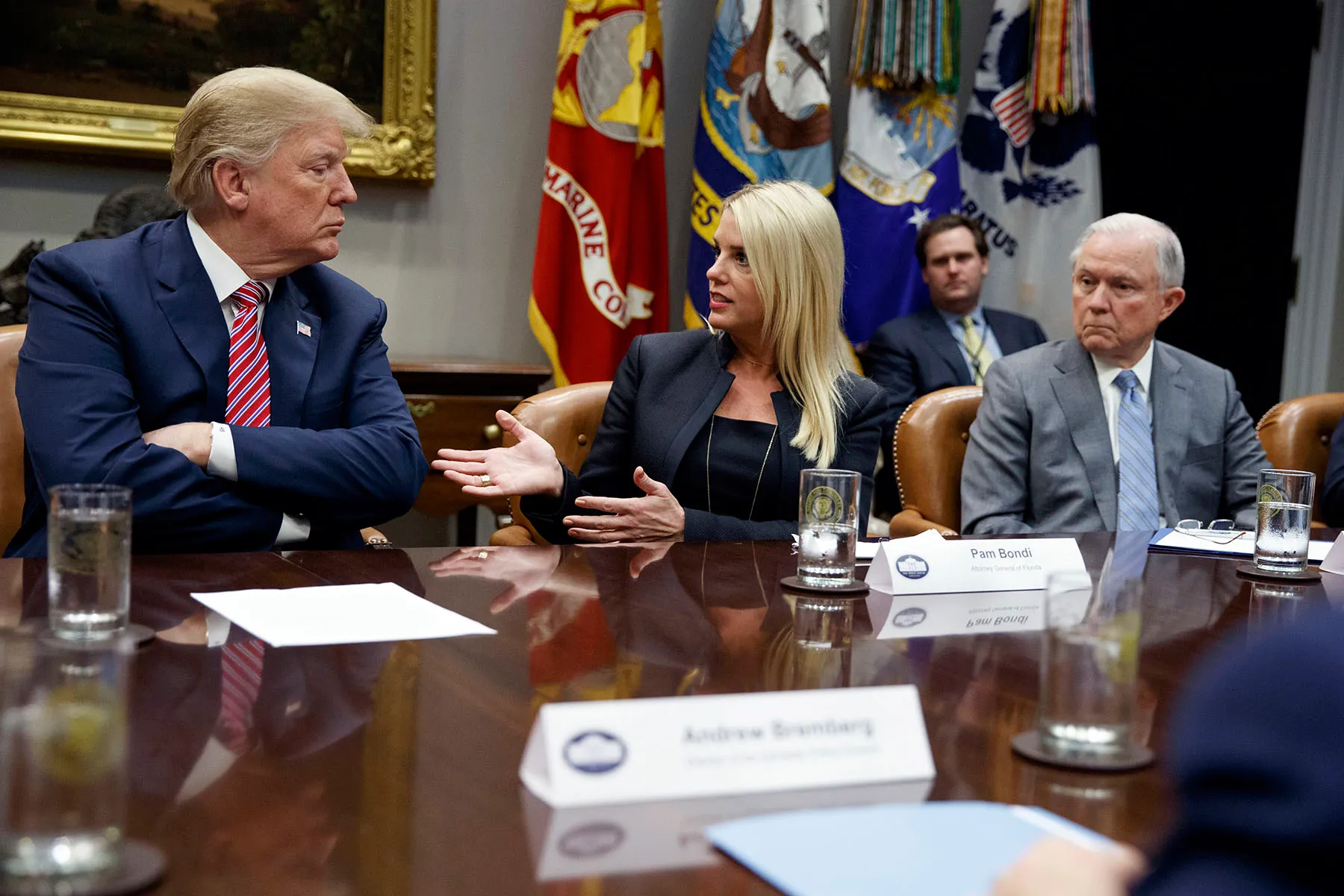President-elect Donald Trump named Pam Bondi as his next nominee for attorney general on Thursday night — hours after former Rep. Matt Gaetz withdrew his name from consideration amid sexual misconduct allegations.
“For too long, the partisan Department of Justice has been weaponized against me and other Republicans – Not anymore,” Trump wrote in a statement on his social media platform, Truth Social. “Pam will refocus the DOJ to its intended purpose of fighting Crime, and Making America Safe Again.”
The switch to Bondi, 59, came as Gaetz faced growing scrutiny around a House Ethics Committee investigation into whether he engaged in illicit drug use and had a sexual relationship with a 17-year-old girl.
Like Gaetz, Bondi is a longtime ally of Trump who has publicly defended the former president throughout his various legal woes and repeated false claims about election fraud in the 2020 election. Unlike Gaetz, though, Bondi has decades of legal experience and was a special adviser for Trump’s legal team during his first impeachment process. She became the first woman to serve as Florida’s attorney general in 2011, a post she occupied for eight years. Prior to that, she was an assistant state attorney in Hillsborough County, Florida.
In 2019, Trump was ordered by a New York state court to close his charitable foundation and pay $2 million in damages because of an illegal donation from the foundation to a political action committee supporting Bondi’s reelection campaign for Florida attorney general. The $25,000 payment occurred in 2013, just before Bondi’s office declined to pursue a lawsuit against Trump University concerning fraud allegations.
If confirmed as Trump’s attorney general, Bondi would be the third woman to hold the position. She will be tasked with leading the Department of Justice, which oversees federal investigations meant to ensure that government agencies uphold civil rights; police departments are held accountable for misconduct; and federal crimes, such as those committed in the January 6, 2021, attack on the U.S. Capitol, are prosecuted properly.
She will also be in charge of the department’s Office for Civil Rights, which helps enforce federal civil rights for historically marginalized communities, including LGBTQ+ people. As Florida’s attorney general, Bondi requested that the Florida Supreme Court overrule a lower court decision that found the state’s same-sex marriage ban unconstitutional. In the aftermath of the 2016 Orlando Pulse nightclub shooting, a targeted attack on LGBTQ+ people resulting in 49 deaths, Bondi said, “Anyone who attacks our LGBT community, anyone who attacks anyone in our state, will be gone after with the full extent of the law.” She has also voiced support for employment protections for LGBTQ+ workers.
She led an effort to challenge President Barack Obama’s Affordable Care Act before the U.S. Supreme Court over its contraception coverage mandate. She also defended a Florida law that at the time required women to wait 24 hours after meeting with a physician to receive an abortion. In 2012, Bondi supported a controversial immigration bill modeled after an Arizona law that allowed the police to ask for immigration papers from people they suspected were in the country illegally.
Bondi entered office as the Florida attorney general a year before the 2012 killing of Trayvon Martin, an unarmed Black teenager fatally shot while walking home from the convenience store in Sanford, sparking the Black Lives Matter movement. At the time, Bondi said she was “devastated and deeply troubled” over the killing. She and then-Gov. Rick Scott appointed a special prosecutor to investigate the death, who ultimately charged a neighborhood watch volunteer named George Zimmerman with second-degree murder. A jury found him not guilty.
Years later, Bondi showed sympathy for Kyle Rittenhouse, a White 17-year-old who had traveled from Illinois to Wisconsin with an AR-15 and fatally shot two men during civil unrest in response to a police killing of a Black man. Bondi referred to Rittenhouse as “a little boy out there trying to protect his community.”
It’s unclear exactly how Bondi might approach accountability for law enforcement who engage in misconduct in her role as U.S. attorney general, but Trump has long advocated for broader protections for police. His first attorney general, Jeff Sessions, pulled back on Obama’s efforts to sue police departments for civil rights violations.
During Trump’s 2024 presidential campaign, he repeatedly indicated he wanted more protections for law enforcement and stricter punishments for certain crimes such as drug offenses. Trump’s campaign website promised “record funding to hire and retrain police officers, strengthen qualified immunity and other protections for police officers, increase penalties for assaults on law enforcement, put violent offenders and career criminals behind bars, and surge federal prosecutors and the National Guard into high-crime communities.”
Bondi has been a vocal critic of the criminal cases against Trump and has called prosecutors who have charged him as “horrible” people who are “going after Donald Trump and weaponizing our legal system.”
She will likely face a much easier road to confirmation than Gaetz, whose selection was met with surprise, confusion and questions, even among some Republican lawmakers.
The Senate is tasked with overseeing and approving confirmations. Still, Trump has pushed the chamber to authorize recess appointments, which would allow a nominee to be confirmed outside of the traditional process. Under the traditional confirmation process, the Senate Judiciary Committee will review Bondi’s record and qualifications and hear testimony for and against her nomination. If a majority on the Senate Judiciary Committee votes to advance a nomination, it will go to a full Senate vote where a simple majority is required to confirm.






